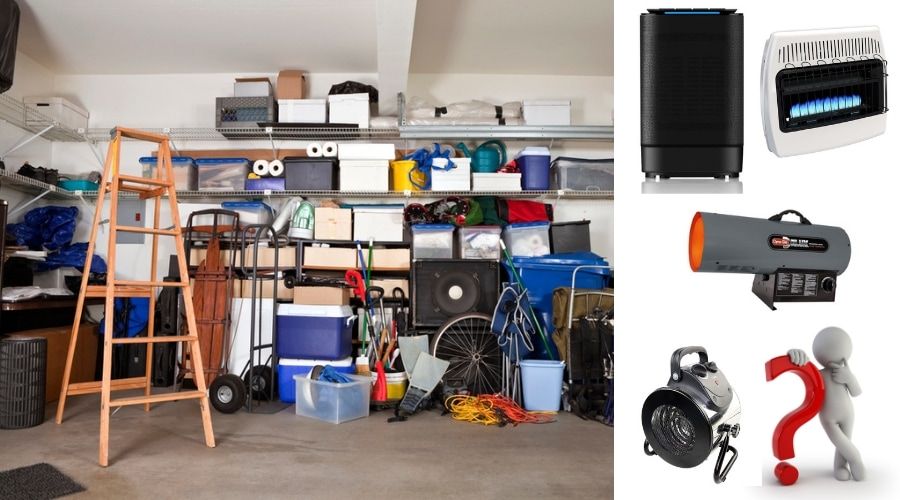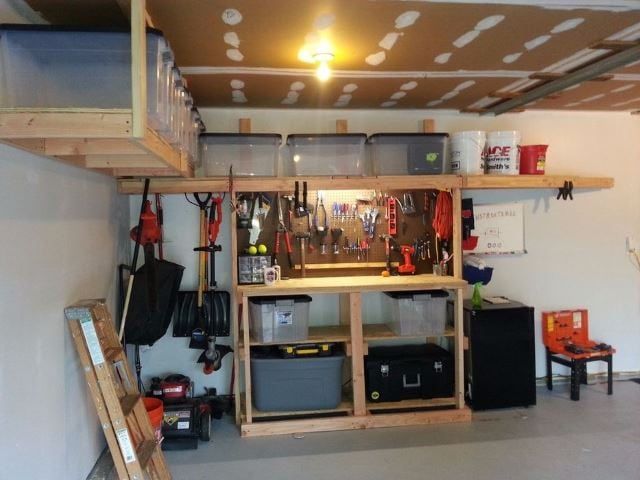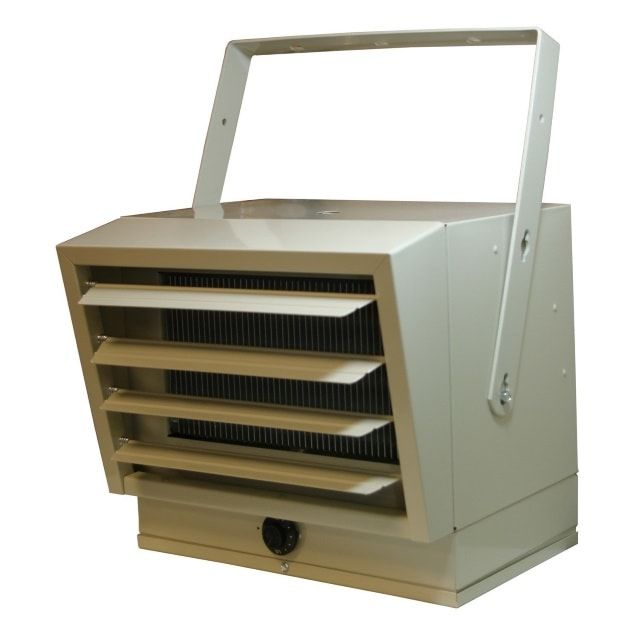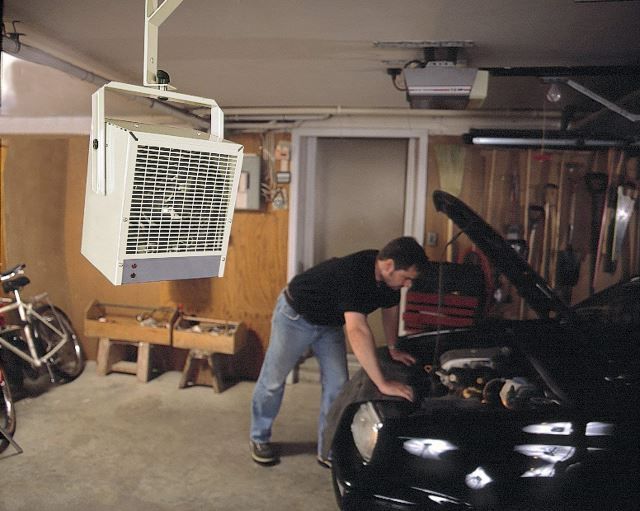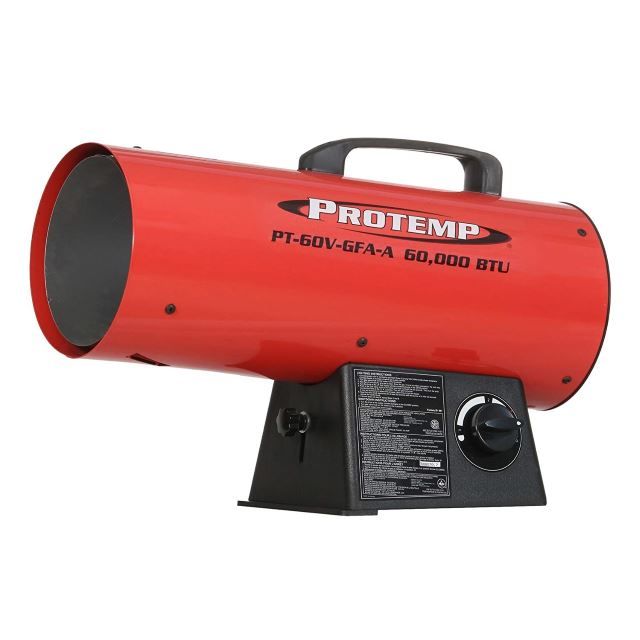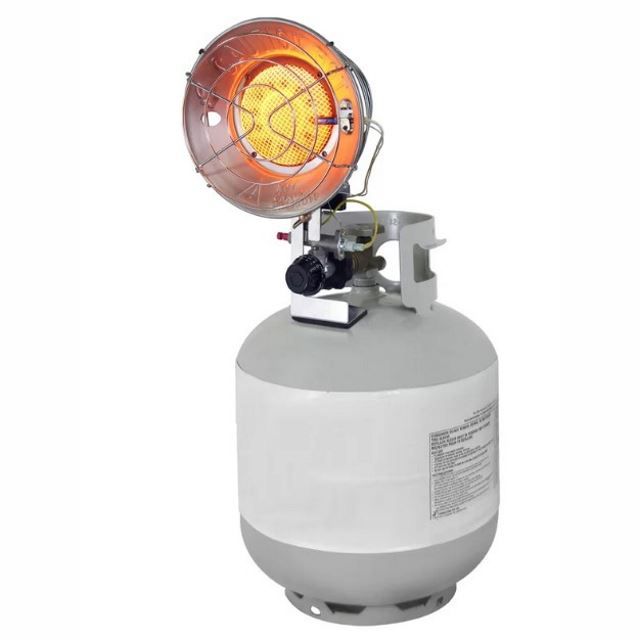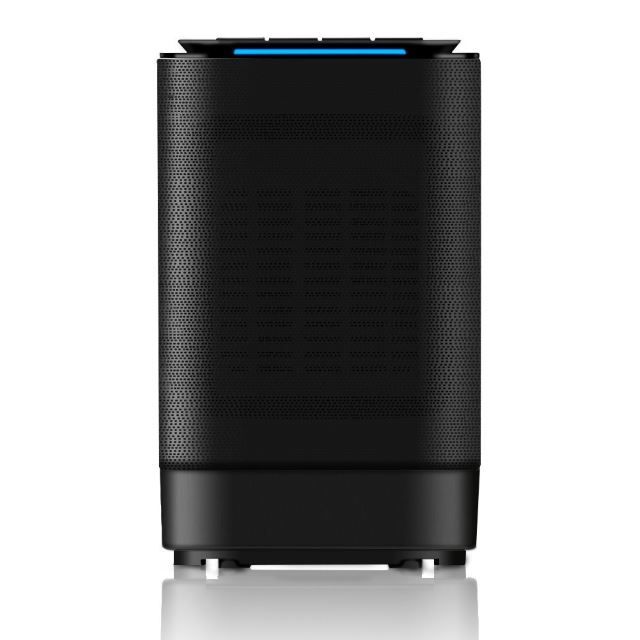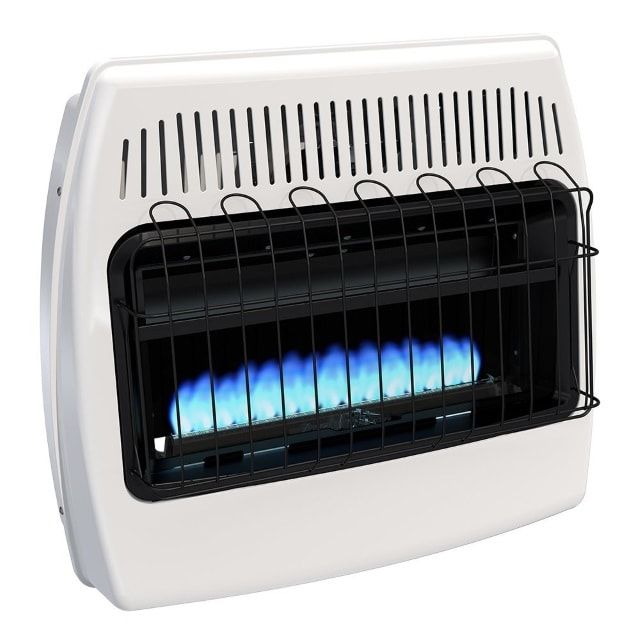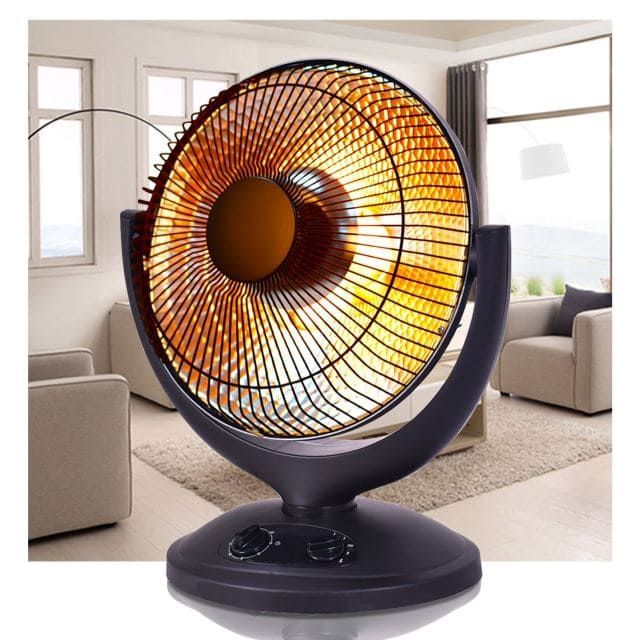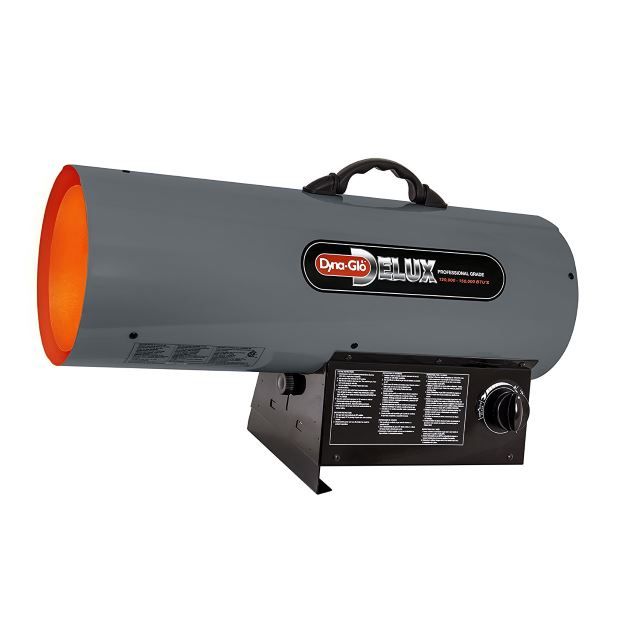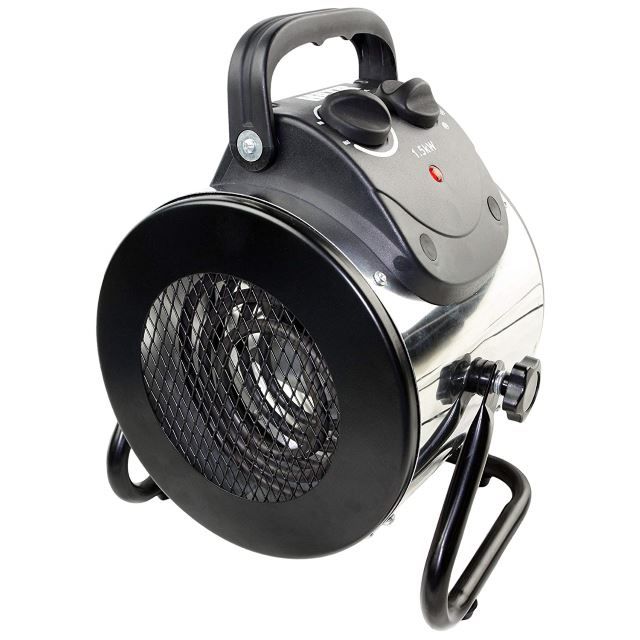When looking to heat, or even supplement the heat, for your garage during the colder winter months you’ll probably want to consider a heater more specific to outdoor building capabilities. Although there are many options available to choose from when considering a heater, before getting into the details of what each has to offer, you need to have some idea of the size of heater most beneficial to your space.
Getting the right size heater for your garage is an important detail as you want efficient, affordable heat. Too small a heater may take more energy that you are willing to pay for to get your space to an acceptable temperature, but too large a heater means you are putting down more money upfront than you need to. To figure what size garage heater you need for your space, read on for a few tips to consider prior to committing to a purchase.
Details to Consider
Unfortunately, heating your garage is not as simple as deciding to go purchase a heater and installing it. Many people think a space heater would do the trick, but you'll need something much larger than what a typical space heater can provide for the size of a garage.
You need to consider some pretty important factors in advance to make sure you get the results you are looking for. To begin, you need to decide if you are wanting to keep a consistent heat within your garage, or a unit to turn on and off as needed. Both types are readily available if you have the proper natural gas lines, or electric properties needed.
Lowest Season Temperature
How cold it gets outside directly influences how cold it can get within your garage. Sure, you may not have to deal with the wind chill, but garages can get within a few degrees of the external temperatures, especially in colder climates. Factor in your lowest seasonal temperature to the temperature you need to heat your space too.
Measuring for Seasonal Temperatures
For example, if your average seasonal outdoor temperature drops to 10 degrees, and you want to keep your garage at a comfortable 60 degrees, then the difference between the two is 50 degrees- and that is what the heater will be required to generate.
Garage Space
The size of your space is obviously incredibly important as well. In fact, it is just as important as the temperature your heater has to be able to generate. The size of your garage is directly related to the output your heater will have to supply to raise the heat in your garage to what you need. Luckily, the square footage of your garage is super easy to calculate, from which you can calculate your cubic footage if you want to be extremely accurate.
Measuring for Square Footage
Square footage is figured by multiplying the length by the width of the garage interior. For example, 20 feet by 30 feet yields 600 square feet. Now you will have an approximate measurement to begin to determine if the heater is large enough- but if you have anything other than a standard 8-foot ceiling, having your cubic measurement on hand can be very helpful.
Measuring for Cubic Footage
To determine the cubic measurement, multiply your square footage by the height of the ceiling. So if you have a 12-foot ceiling, and your square footage is 600, then 12 x 600= 7200 cubic feet.
Insulated vs Non-insulated
Obviously, an insulated garage is going to hold in heat much better than a non-insulated garage. If you have a non-insulated space, then you will want to consider purchasing a unit that is rated for a larger space than what you plan on heating simply to help offset what will be lost through the walls. You can actually calculate this directly into the size heater you will need with the equation provided below.
Choosing What Size Heater You Need
Ultimately, the size heater you choose must be able to heat your space, as calculated above. In order to determine which heater will work best for you, you will need to look closely at its specifications. Many heaters may make comment on how many square feet it is able to handle, but that does not take into account your insulation (or lack of), and also runs off a general assumption of an average, 8-foot ceiling. To best determine which heater will work for you, you will want to focus on the BTU (British Thermal Unit) capabilities. Without going into too great of detail, this describes how much energy is required to produce heat.
Calculating BTU
To determine how much BTU is needed to heat your space, you can use the following equation based on your earlier calculations. What is great about this measurement is that it takes into account the amount of insulation you have. If you are well insulated, use 0.5; average insulation, 1.0; little insulation, 1.5; and no insulation, 5.
The equation, insulation quality x total cubic feet x total heat raise desired = the BTU requirement. When looking for a heater, be sure to check what BTU availability the product has. And remember, in severely cold climates you may want to tack on 10% to the BTU calculation to ensure you get the temperature you need.
Types of Garage Heater
Garage heaters can either be more permanently installed, or considered portable- meaning they might have mounting capabilities, but can be moved when needed without too much of a hassle. What you choose to install is entirely up to you, but more permanent installed heaters that are connected to main natural gas or propane lines, or are connected directly to your electrical system have a tendency to be larger and heat more space.
However, garages aren’t always large enough to warranty this either. The important thing to consider is what heating capabilities are needed, and what preference do you have in your choice of heaters for the most effective heat possible.
Electric
Electric heaters can be found as both portable and more permanent products. If not wired directly into your electrical source, you will need a 240-volt outlet capability. Also be sure to check for breaker strength- usually at least 20 amps are required. You may want professional insulation for permanent heaters.
Fuel
Fuel generated heaters, such as propane, natural gas, kerosene, and diesel are all readily available. If you have propane or natural gas lines, then you can take advantage of a more permanent heating setup, but otherwise all but natural gas also come in powerful portable choices.
Radiant (Infrared)
Radiant heat warms the objects closest to it, rather than heating the air. This is highly effective and can be used when direct heat is needed.
Forced Air
Forced air units take in cold air, heat it, and then force it back into your space using fans. This is a highly effective method for larger areas, and can also be used with a thermostat.
Convection
Convection heaters work in a similar manner to forced air units but depend upon natural air circulation, rather than fans. These are quiet, effective, and considered very clean- even when used with fuel.
Conclusion
If you have been wondering what size garage heater you need for your garage, then hopefully this has shed some light on the steps you need to take to ensure you get the most effective unit possible. Some simple calculations prior to your research are truly all you need to ready yourself to begin searching for the perfect heating unit. Be sure to consider your insulation and winter temps carefully as well.
If you have any further questions about this topic, please let us know in the comments below. And, as always, please share!

